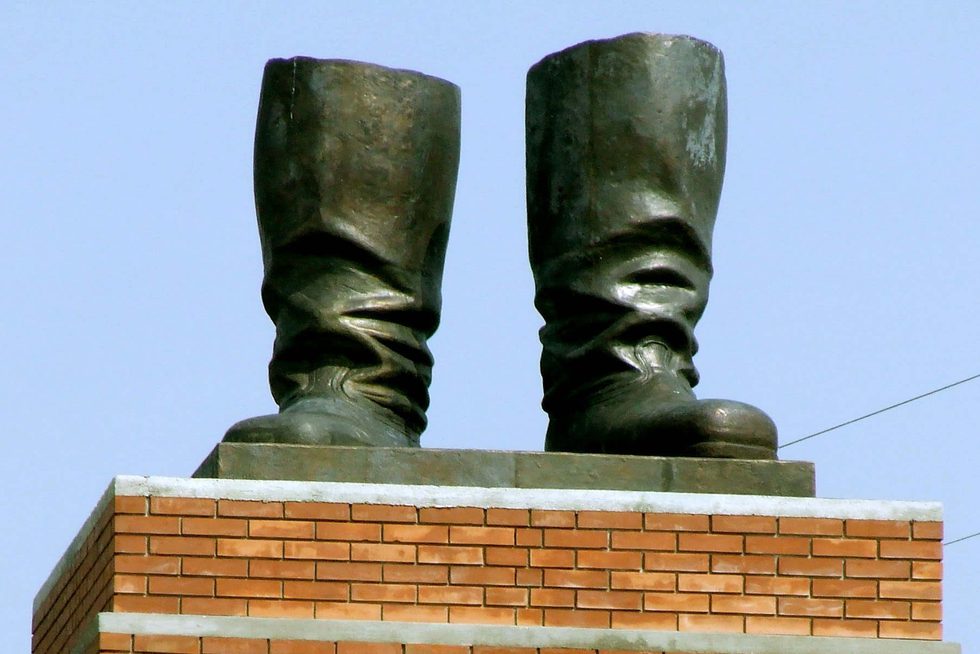
The cumulative effects of Brexit, the resurgence of populist politics in Europe, and the election of Donald Trump as president of the United States have given rise to the perception that Western liberal democracies are undergoing profound change, if not a bona fide crisis. Moreover, there is a sense that it is the political liberalism of the post–Cold War period—rather than its far less popular companion ideology of neoliberalism—that finds itself in disarray. As scholars and commentators rummage through their intellectual toolboxes for explanatory frameworks, many are turning to (post)socialist histories and experiences as heuristic devices for making sense of the upheavals in Western politics. In this Hot Spots series, we suggest that the postsocialist transition, as both discursive space and set of practices that attempted to make capitalists out of socialists and liberals out of totalitarians, renders the former socialist world a rich site for understanding the current shifts in the Western political landscape. We aim to make sense of this landscape in a way that is attuned to both long-term processes and to the state of emergency reinforced with each new wave of current events. Even though the ground appears to be constantly shifting beneath our feet, these essays insist that detailed, historically and geopolitically sensitive analysis of actually existing post–Cold War liberalisms is one key approach for making sense of the present.
Posts in This Series

Introduction: Lessons for Liberalism from the “Illiberal East”
The cumulative effects of Brexit, the resurgence of populist politics in Europe, and the election of Donald Trump as president of the United States have given... More

Trump, Russia, and Monstrations
After the collapse of the Soviet Union, Susan Buck-Morss remarked that the whole world was now postsocialist. In the past decade, however, it has become commo... More

Geopolitics of (In)security on Europe’s Baltic Frontier
In 2014, Lithuanian president Dalia Grybauskaitė described Russia as a “terrorist state,” warning that if “open aggression against its neighbor is not stopped, ... More

#Trumpistan: On the Cunning Familiarity of the Authoritarian Absurd
In January 2015, a New York Times article about a mountain-climbing misadventure inadvertently established a fictional country: Kyrzbekistan. The typographic co... More

The West Has Made Mistakes: Knowing the Immigrant Threat in Kaczyński’s Poland
“Poland slams door on refugees,” declared a Politico headline on March 23, 2016. In the aftermath of the terrorist attacks in Brussels on March 22, the story ex... More

Warnings from the Future? Central European University and the Fate of Europe
In the spring of 2017, Hungary’s right-wing Fidesz government passed legislation to shut down Budapest’s Central European University (CEU). Founded by George So... More

Corruption Kills
For several weeks in February 2017, more than a quarter million protesters occupied a main square of Romania’s capital, Bucharest. Enduring subzero temperatures... More

Paranoia, Conspiracy Theories, and Democratic Decay: Reflections on the Political Commentaries of Ivan Krastev
Since 2015, political scientist Ivan Krastev has become a regular op-ed contributor to the New York Times, with each of his columns starting with the dateline: ... More

Déjà Vu: How Today’s Western Democracies Recall Eastern Europe under Communism
Journalists, academics, former diplomats, and even cultural giants like Garry Kasparov, Mikhail Baryshnikov, and Martina Navratilova have been delivering up a d... More

U.S. Energy and Politics through a Russian Lens
It will likely take years—and much forensic accounting—before we understand the extent and shape of the connections between state/corporate actors in Russia and... More

Ukraine and the Evaporating Hyphen of Market-Democracy
Information wars, fake news, kompromat: surprised Ukrainians have found their lexicon for foreign interference spread as loan-words across a putative new Cold W... More

Desoroizacija and Politics after (Il)liberalism
On January 28, 2017, a small group of Macedonians staged a protest at Trump Tower. A dozen of homemade banners appealed to President Donald Trump: “Macedonia ne... More

The Art of the Bait
Shortly after Donald Trump’s victory in the Republican primaries of the 2016 U.S. presidential election, many Bosnians and Bosnian-Americans started to voice th... More

The (In)significance of Latvia in the Battle Between Good and Evil
After a moment of fame due to its resistance to Soviet power in the late 1980s, Latvia retreated into oblivion. The blank stares that one encountered at the men... More

The Fake News Mills of Macedonia and Other Liberal Panics
On November 4, 2016, Buzzfeed broke a news story with the headline “How Teens In The Balkans Are Duping Trump Supporters With Fake News.” The article described ... More